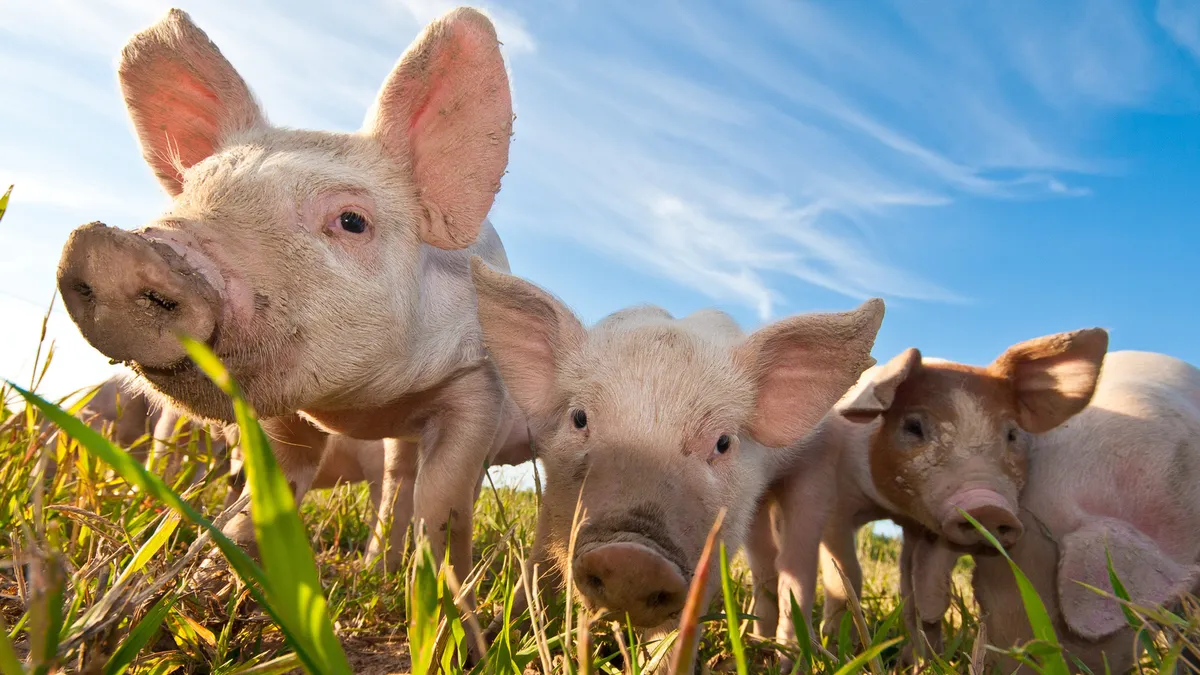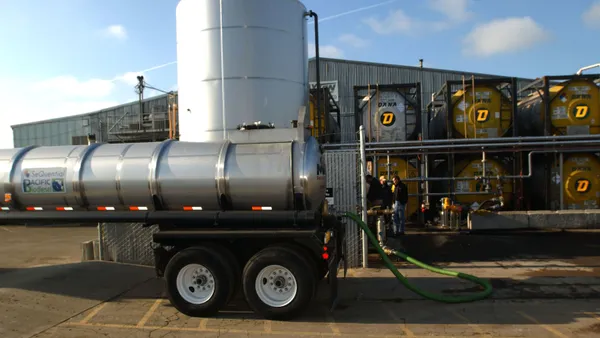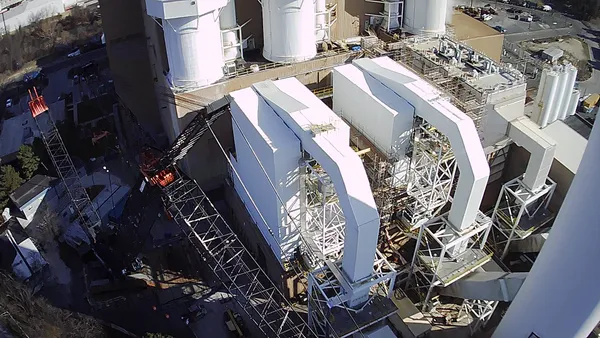Dive Brief:
- St. Louis-based Roeslein Alternative Energy has begun a $120 million animal waste-to-energy (WTE) operation in Missouri to generate renewable natural gas (RNG), using resources at nine Smithfield Foods Inc.’s Missouri hog production facilities.
- The project slated for completion by mid-2016 will generate about 2.2 billion cubic feet of pipeline-quality RNG — equal to 17 million gallons of diesel fuel annually. The company is installing impermeable covers and flare systems in manure lagoons at hog finishing farms. The next phase entails installing technology to purify the biogas captured by the covers and developing an inter-connection to a natural gas pipeline.
- The project will involve adding biomass from native prairie grasses, as a supplement to hog manure feedstock, which will double RNG production, according to a press release.
Dive Insight:
"We are developing a mixture of grasses and native species that provide … biomass that will be co-digested with manure," said Rudi Roeslein, founder and president of Roeslein. "We hope to demonstrate the concept on a small scale … move it to other farms and then hopefully across the Midwest."
As the waste-to-energy industry moves forward, more sophisticated technology is evolving to turn waste into a commodity. Cutting-edge concepts are propelling the industry onto the sustainability front and helping business’ bottom line — providing safe solid waste management and relatively inexpensive, renewable energy.
"The technology we have developed is ready to be deployed commercially in a project that makes both economic sense and environmental sense," said Roeslein. "This is not just about converting the manure from almost two million pigs into renewable energy. It's about taking environmental sustainability to a new level."
Duke Energy in North Carolina plans to buy some of the RNG as a means to accomplishing clean energy requirements for power generation. Some North American zoos have recently begun to capitalize on this energy resource too.














